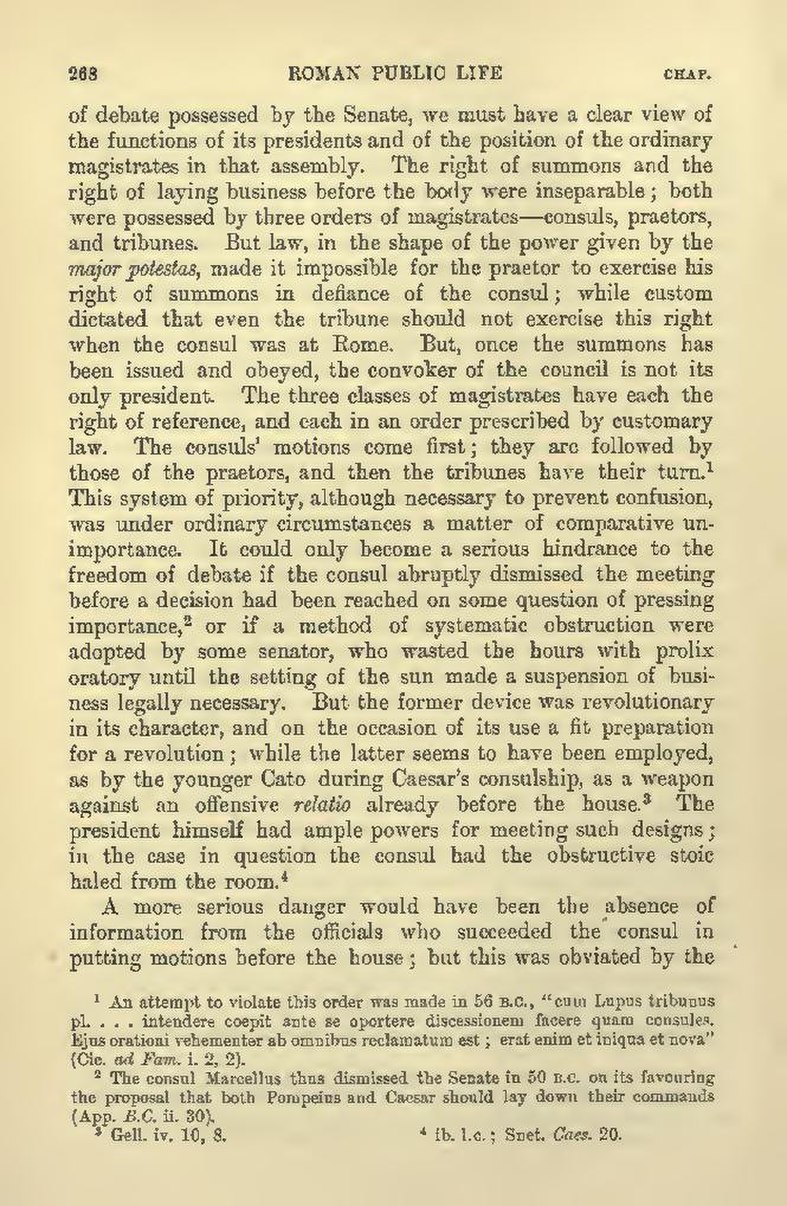of debate possessed by the Senate, we must have a clear view of the functions of its presidents and of the position of the ordinary magistrates in that assembly. The right of summons and the right of laying business before the body were inseparable; both were possessed by three orders of magistrates—consuls, praetors, and tribunes. But law, in the shape of the power given by the major potestas, made it impossible for the praetor to exercise his right of summons in defiance of the consul; while custom dictated that even the tribune should not exercise this right when the consul was at Rome. But, once the summons has been issued and obeyed, the convoker of the council is not its only president. The three classes of magistrates have each the right of reference, and each in an order prescribed by customary law. The consuls' motions come first; they are followed by those of the praetors, and then the tribunes have their turn.[1] This system of priority, although necessary to prevent confusion, was under ordinary circumstances a matter of comparative unimportance. It could only become a serious hindrance to the freedom of debate if the consul abruptly dismissed the meeting before a decision had been reached on some question of pressing importance,[2] or if a method of systematic obstruction were adopted by some senator, who wasted the hours with prolix oratory until the setting of the sun made a suspension of business legally necessary. But the former device was revolutionary in its character, and on the occasion of its use a fit preparation for a revolution; while the latter seems to have been employed, as by the younger Cato during Caesar's consulship, as a weapon against an offensive relatio already before the house.[3] The president himself had ample powers for meeting such designs; in the case in question the consul had the obstructive stoic haled from the room.[4]
A more serious danger would have been the absence of information from the officials who succeeded the consul in putting motions before the house; but this was obviated by the
- ↑ An attempt to violate this order was made in 56 B.C., "cum Lupus tribunus pl. . . . intendere coepit ante se oportere discessionem facere quam consules. Ejus orationi vehementer ab omnibus reclamatum est; erat enim et iniqua et nova" (Cic. ad Fam. i. 2, 2).
- ↑ The consul Marcellus thus dismissed the Senate in 50 B.C. on its favouring the proposal that both Pompeius and Caesar should lay down their commands (App. B.C. ii. 30).
- ↑ Gell. iv. 10, 8.
- ↑ ib. l.c.; Suet. Caes. 20.
